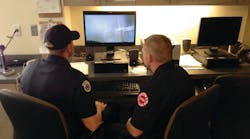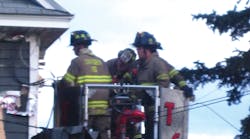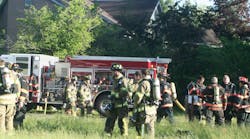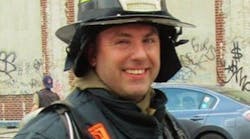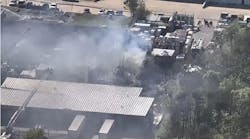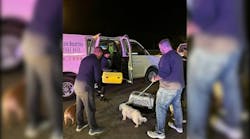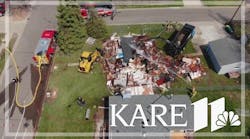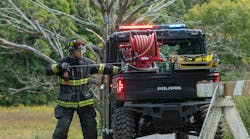Are we keeping current with the trends that are enveloping us in the fire service? How do we know? Is our training reflective of new standards, without forgetting our basic skills in lieu of more technical and advanced firefighting challenges? It’s hard to tell many days with the new studies and the new threats that rear their heads to us on a daily basis. From terrorism, to government, to Joe Public, there is a lot for us to keep track of to keep safe. While we are keeping track of the various dangers, we have to keep up on old training, get back to the basics; our “bread-and-butter operation” of wet stuff on red stuff, if you will. So with this in mind, the question is, where do we start, how do we evolve our training to incorporate all this new stuff coming at us daily? How do we integrate this with our daily operations and preparation?
Much of this falls back to knowing your first- and second-due areas. Which issues and problems are more likely to present themselves to you as you are responding to these calls? As we go on alarms and first-aid calls, do you pre-plan the structures you are entering; we talk about it but are we really doing it? It’s a free pass in the building. After you have examined these, is there anything that you have noticed that you feel should be addressed? If you have, this is your opportunity to evolve your department training and keep it current to what you need.
Many problems, obviously, are regionally based. Home condition, average age of citizens, threat levels for terrorist activity, criminal drug activity (meth labs, illegal substances and their potency), etc. are all based upon where you live. With this in mind, we should pick the top five problems that are the most likely to occur in our response area and begin training and incorporating them with our basic tactics. Once we begin to identify where we should be preparing, we can bring our basic tactics and the new issue together and evolve the training to keep current.
There are two topics that come to mind to address trends on a national and a local level.
On the national level, the recent rise in “hoarding home” or “hoarder fires” seems to be something departments are facing on a more constant basis. There are several facets of this phenomenon that people need to be made aware of in order to operate safely when encountering these conditions. My department over the last eight years has encountered two of these types of fires, and the conditions from the first to the second were bad to exponentially worse. The more first-aid calls and silent alarms we respond to, the more we are noticing people who are hoarding in their home. While there are many terms for these (Collyers Mansion’s is a term used in the Northeast), it’s fast becoming an issue due to our current economic state, and the advanced age of our largest generation in the country currently.
An expert in the field of hoarder fires, Ryan Pennington has a website, www.chamberofhoarders.com, and training set up to help fire departments know ahead of time what to expect, how to tell which homes to be on the lookout for, and how to help those who do hoard. Some key topics to take from his information are attack alternatives, getting help for the people that live in the home, health and other safety risks to firefighters and new terminology to help people across the country get on the same page. Utilizing this website and adapting the lectures on it to your company’s tactics can help your department prepare for the inevitable occurrence that you will have one. Anticipating and training for this potential incident, while combining your basic tactics is evolving your training.
A more localized topic that is starting to affect companies in the Northeast are residential and commercial solar panels. For economic and environmental purposes, people who can afford it are now installing solar panels on their homes to reduce their amount of energy consumption, and to save money on their utilities. I reside in Buffalo, NY, and we are not known for our pristine crystal blue skies, and sun-filled days (which we do have, occasionally). Much to our department’s surprise, solar panel technology has advanced to the point that the panels need very little light in order to be operating and providing a charge; meaning the residual glow of a full moon or a street light is enough to provide the panel with power. My department has now done research into how to safely handle incidents with solar panels, and we have begun training our firefighters and adapting our training to deal with these instances; we have evolved our training to meet our current needs with our basic tactics.
As more threats are perceived in the fire service and we are called to prepare for more and more, we need to take a step back and address a couple issues. Could this happen? Sure, but on a scale of 1-10 what is the probability of occurrence? Currently, is our department ready to handle said situation? If yes, then good for you for pre-planning and hazard assessment; if no, what can you do to incorporate this new hazard into your current training curriculum?
A past chief of my department, Thomas Merrill, utilized the phrase “Improvise, Adapt, and Overcome.” This was a phrase he used to defeat Murphy’s Law whenever it came into play. However, we can also adapt that into evolving our training. Just change improvise to evolve and now there’s a new slogan to use “Evolve, Adapt, and Overcome”. Evolve your training, adapt it to the hazards and threats that are new to your response are, and start to overcome the challenges these new hazards present to your department.
SEAN WILKINSON is a former captain and training officer with the Snyder Fire Department. He has a background in secondary education, and a history degree from the University at Buffalo. He can be reached at [email protected].
